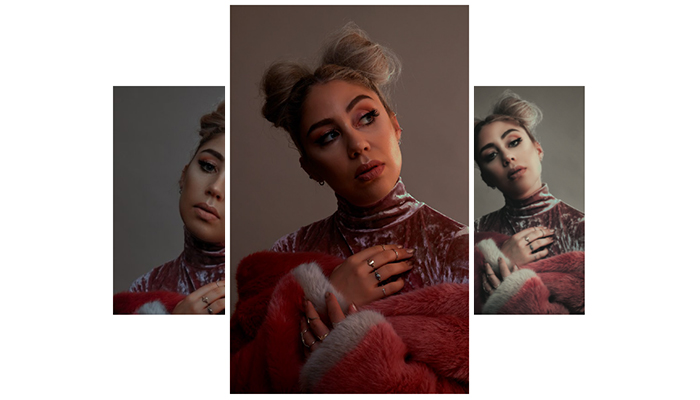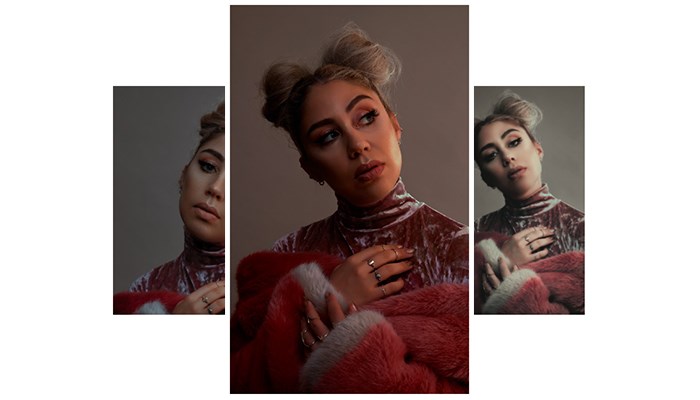Theia
"No one would expect to turn up at work and do a 40-hour week and not get paid for it". Theia on the importance of music royalties.
Em-Haley Walker is Theia. The Christchurch-born artist has already had several hits, with her single Roam having clocked up over 10 million plays on Spotify.
We spoke to Theia, alongside music licensing organisation OneMusic, about the iceberg that is the music industry and how important royalties are to her career.


“I moved to Auckland in September 2016, after it became too difficult travelling between Auckland and Christchurch to make music.
I was focusing on doing everything up here, so I was working down in Christchurch, flying up to Auckland to do music, and then flying back down. I worked three jobs - I did pool life guarding, I worked at Ballantyne’s and I taught at a Primary school. I just tried to balance everything to make money to support my music.
I’ve been writing music since I was very little, I always knew that I’d end up working in the creative realm. As I got older I started viewing music as something I really wanted to do for a living.
When it comes to working on my career, I’ve just had to make time to make it work. September 2016 is when everything peaked for me, after Roam was released in late August. In some ways, it feels like it’s been forever and I’ve been doing this for so long, and in other ways, it’s crazy to see that it’s been a year and seeing how much has happened and what I’ve achieved.
So far the highlight for me has been making music full time, which has been amazing. There have been moments of “Woah it's really happening”, like seeing myself on the cover of the Malaysian Star, or hearing my songs on the radio or on peoples’ Spotify playlists – it’s just really cool, thinking my work is paying off.
It was really cool the first time I heard one of my songs playing on the radio. Even now I’m slightly taken aback when one of my songs comes on the radio, it's still unreal. You’re always in your own little world so when something comes in from the outside it’s surreal.
In this industry, you really have to make sacrifices. While I was working three jobs my friends were doing things that I couldn’t join in on because I was trying to make money to record. It was doable because I wanted it so much, but even now it’s hard missing family and friends’ milestones because I have all these career commitments.
The music industry is an iceberg. People think it happens quickly, and while some parts of it do, there’s been years of unseen work to get to the point where you can get a good result from what you release. I feel like more and more the creative industry is starting to be more appreciated, people are realising how much work and crafting goes into what we make. I take a lot of care in what I do, I write my own music and have a have a hand in production and creating the melody, it's definitely something I am all over.
Royalties are crucial for sure, that income is so important. When you think of royalties, it is kind of like asking someone who works how important a salary is to them. No one would expect to turn up at work and do a 40-hour week and not get paid for it. For me, it is a full-time job that never ends.
There is no way I couldn’t do what I am doing. It’s hard, but I wouldn’t change it because this is what gives me life.”
Artists like Theia put a lot of time, money and energy into the music they create. When you use music in a business setting, you need to obtain a licence from OneMusic to get the legal permission you need to play music. The licence fees you pay are then paid to artists like Theia so they can continue to make the music that helps your store hum.
Theia’s music, as well as the music of artists world-over is protected under the New Zealand Copyright Act (1994). A OneMusic licence meets your copyright obligations under the New Zealand Copyright Act when using music in a business, and ensures that music creators are fairly compensated for the use of their work.